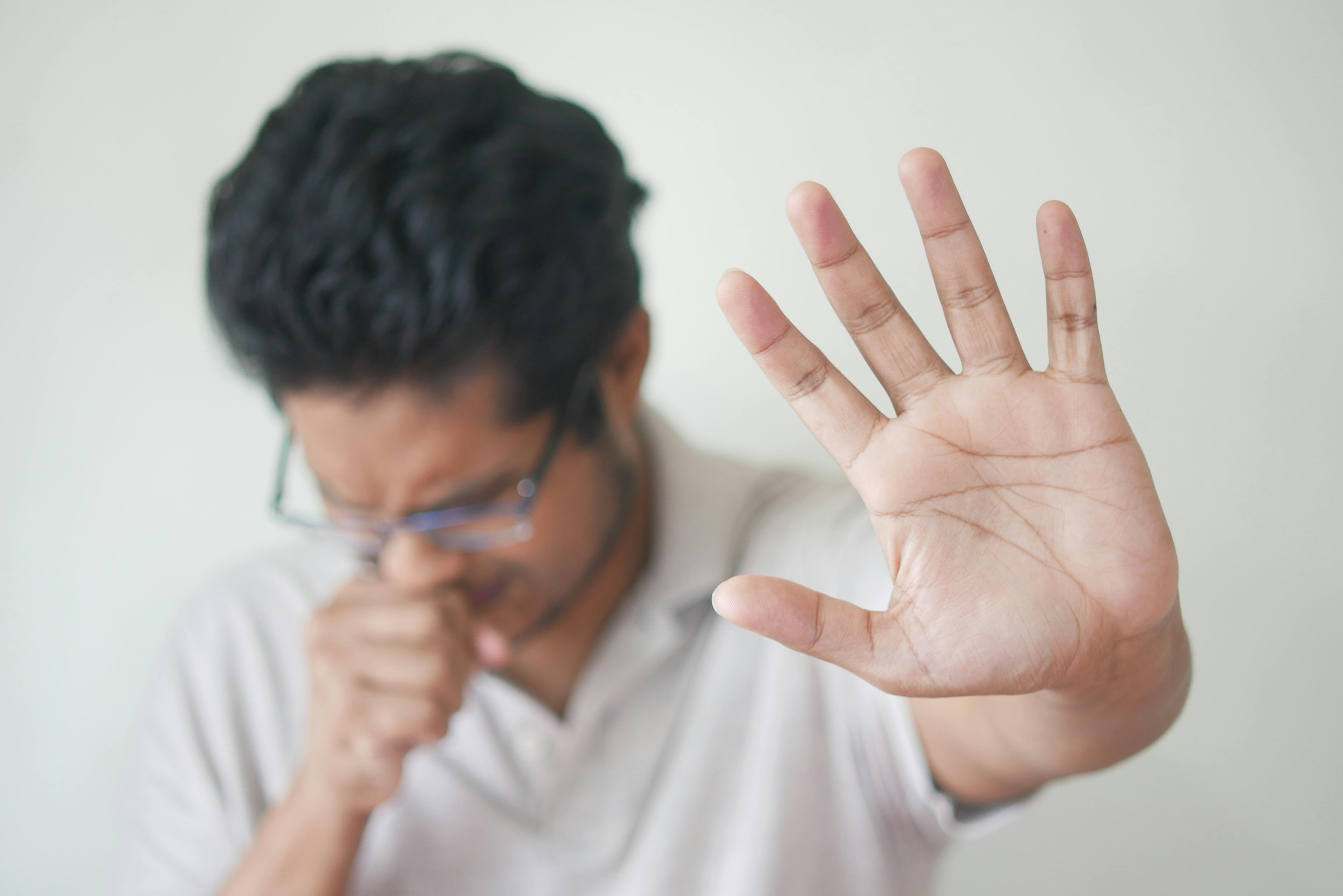Sneezing is an important part of our body’s natural defence system, but it can also cause some unexpected side effects, such as testicular pain. While the exact cause of this phenomenon is still unknown, there are a few potential explanations as to why sneezing can lead to testicular pain. In this article, we’ll explore the possible causes behind this strange phenomenon and offer some tips on how to reduce the discomfort associated with it.Testicular pain after sneezing is often caused by a condition called epydidymitis, which is an inflammation of the epididymis. This inflammation can be caused by a bacterial infection, such as a sexually transmitted infection, or a viral infection. Other causes of testicular pain after sneezing include trauma to the area, including straining during heavy lifting or exercise, as well as scrotal hernias.
How Does Sneezing Affect the Testicular Region?
Sneezing can have a significant effect on the testicular region. When a person sneezes, the abdominal muscles contract and push air out of the lungs. This causes a sudden increase in pressure in the abdominal cavity, which can cause discomfort in the testicles. Additionally, sneezing is often accompanied by coughing, which can also cause pain and discomfort in the testicles.
The most common complaint associated with sneezing and its effects on the testicular region is pain or discomfort in the area. This can range from mild to severe and may be accompanied by other symptoms such as nausea, dizziness, or sweating. In some cases, there may also be swelling or bruising of the testes due to increased pressure during sneezing.
It is important to note that pain or discomfort associated with sneezing should not be ignored. If symptoms persist for more than a few days or if there is any redness or swelling of the scrotum or testes then it is advisable to seek medical advice as soon as possible. In some cases, underlying conditions such as infection or inflammation may be causing symptoms and should be treated promptly.
In general, avoiding activities that increase abdominal pressure such as lifting heavy objects or straining during bowel movements can help reduce pain caused by sneezing in the testicular region. Additionally, making sure to get regular exercise to strengthen core muscles can also help reduce pain and discomfort associated with sneezing.
Overall, sneezing can have a significant effect on the testicular region causing pain and discomfort but these symptoms should not be ignored if they persist for more than a few days. Consulting with a medical professional can help identify any underlying conditions that may need treatment.
The Possible Reasons Behind Testicular Pain Post-Sneeze
Testicular pain post-sneeze is a condition that can be uncomfortable and even alarming for those who experience it. While the exact cause of this type of pain is not yet known, there are several possible reasons why it may occur. The first possibility is that the sneeze causes a sudden increase in pressure on the groin area, leading to discomfort inside the testicles. Another potential cause is that the muscles around the testicles contract during a sneeze, resulting in a feeling of tightness and pain. Finally, sneezing may irritate existing nerve pathways in the groin area, leading to testicular pain.
It is important to note that testicular pain post-sneeze usually does not indicate any major health issue and typically resolves itself over time. However, if you are experiencing persistent or severe testicular pain, it is important to speak with your doctor to rule out any underlying medical conditions.
In some cases, certain lifestyle changes may help reduce symptoms of testicular pain post-sneeze. Wearing loose-fitting clothing can provide more comfort and prevent irritation around the groin area. Additionally, avoiding certain types of foods such as spicy foods or caffeine can help minimize discomfort as well. Finally, taking steps to reduce stress levels can also help reduce symptoms associated with this condition.
Overall, testicular pain post-sneeze can be alarming for those who experience it but typically does not indicate any serious health concern. As always, if you are concerned about your symptoms or experience persistent or severe discomfort in your groin area it is important to speak with your doctor for further evaluation and management.
Could Allergies Cause Testicular Pain After Sneezing?
Yes, it is possible for allergies to cause testicular pain after sneezing. This is because sneezing can cause a sudden increase in pressure in the abdomen, which in turn can cause a sudden increase in pressure on the testicles. This can lead to pain or discomfort. Studies have shown that people with certain allergies may be more likely to experience testicular pain after sneezing than those without these allergies.
For example, people with asthma may have an increased risk of experiencing testicular pain after sneezing due to the fact that they often experience inflammation and airway obstruction when having an asthma attack. This can lead to an increased pressure within the abdomen and result in a increase of pressure on the testicles.
In addition, people with allergic rhinitis (hay fever) may also be more likely to experience testicular pain after sneezing due to their already inflamed and blocked nasal passages. When they sneeze, the added pressure from this can put additional strain on their testicles and cause discomfort or pain.
It is important to note that while allergies may increase your risk of experiencing testicular pain, it does not mean that every time you sneeze you will experience this symptom. However, if you are experiencing frequent or persistent testicular pain after sneezing it is important to speak with your doctor as they can help determine the underlying cause and provide treatment options if needed.
Could Sudden Movement Result in Testicular Pain After Sneezing?
It is possible for sudden movement to cause testicular pain after sneezing. Sneezing is a sudden reflex action, and the body’s reaction to this can cause a sharp contraction in the muscles of the abdomen, which can cause pain in the testicles. The testicles are located within the scrotum, which is connected to the abdominals via suspension ligaments. As a result, any kind of quick jolt or unexpected pressure on these ligaments can cause pain in the testicles.
Sneezing may be particularly troublesome for people who suffer from existing conditions such as varicocele, which is an enlargement of veins within the scrotum. These enlarged veins are more sensitive to sudden movements and contractions, meaning that they are more likely to be affected by sneezing or coughing than healthy veins would be.
Testicular pain after sneezing can also be caused by nerve damage or inflammation in and around the scrotum area. In some cases, intense coughing or sneezing may irritate already-injured nerves, leading to increased discomfort in that area.
It is important for anyone experiencing testicular pain after sneezing to seek medical attention if it persists for more than a few days. It may be a sign of an underlying condition such as varicocele or nerve damage that requires treatment. Additionally, if accompanied by other symptoms such as fever or swelling in the affected area, it could indicate an infection and should be checked out by a doctor immediately.

The Link Between Sneezing and Lower Abdominal/Testicular Pain
Sneezing is a reflex that helps to clear the nasal passages of irritants and foreign particles. While sneezing is usually harmless, it can sometimes be accompanied by lower abdominal or testicular pain. This pain may be caused by a variety of conditions, including allergies, infections, and muscle strain. In some cases, it may also be a sign of more serious underlying medical issues.
One possible cause of lower abdominal or testicular pain after sneezing is an allergic reaction. Sneezing is often associated with allergies due to the body’s response to certain irritants and allergens in the air. When these substances come into contact with the nasal passages, they can cause an immune response that results in sneezing as well as other symptoms such as abdominal cramping or testicular discomfort.
Infections such as colds and flu can also lead to pain in the lower abdomen or testicles when accompanied by sneezing. These types of infections are caused by viruses that can cause inflammation in various parts of the body, including the abdomen and genitals. Sneezing may be one way that these viruses spread throughout the body, leading to increased levels of discomfort in these areas.
Another potential cause for lower abdominal or testicular pain after sneezing is muscle strain or spasm. When we sneeze, our bodies contract suddenly in order to expel any irritants from our nasal passages. This sudden movement can sometimes lead to muscle spasms throughout the body, which can result in abdominal or genital discomfort.
Finally, it is important to note that lower abdominal or testicular pain after sneezing may be a sign of more serious underlying medical issues such as hernias or kidney stones. If you experience any type of persistent or severe pain after sneezing, it is important to speak with your doctor for further evaluation and treatment options.
In conclusion, there are several potential causes for lower abdominal or testicular pain after sneezing including allergies, infections, muscle strain/spasm, and underlying medical issues like hernias and kidney stones. If you experience any type of persistent or severe pain after sneezing it’s important to speak with your doctor for further evaluation and treatment options
Possible Treatments for Testicular Pain Post-Sneeze
Testicular pain post-sneeze is a common problem that can be caused by a number of different factors. While it is not usually serious, it can be quite uncomfortable and can even lead to more serious complications if left untreated. Fortunately, there are a few possible treatments that can help to alleviate the symptoms and provide relief.
One of the most common treatments for testicular pain post-sneeze is rest. Taking some time off from physical activity and avoiding any strenuous activity that may cause further irritation will allow the area to heal properly and reduce discomfort. Additionally, wearing loose fitting clothing and avoiding tight-fitting underwear and tight jeans can also help to reduce pressure on the area.
Another possible treatment for testicular pain post-sneeze is over-the-counter medications such as ibuprofen or acetaminophen, which can help to reduce inflammation and provide temporary relief from the pain. Alternatively, prescription medications may be necessary in some cases if the pain is severe or persists for an extended period of time.
Heat therapy is another potential treatment option for testicular pain post-sneeze. Applying heat pads or taking warm baths can help to relax the muscles in the pelvic region and improve circulation, which helps to reduce inflammation and relieve discomfort.
Finally, if all else fails or if the pain persists despite other treatments, consulting with a doctor may be necessary in order to diagnose any underlying medical conditions that could be causing the testicular pain post-sneeze. The doctor may then recommend additional treatments or medications depending on their diagnosis.
Overall, while testicular pain post-sneeze is not usually serious, it can still be quite uncomfortable and it’s important to take steps towards relieving the symptoms as soon as possible in order to avoid any further complications down the line.
The Role of Stress in Testicular Pain Post-Sneeze
The sneezing reflex is a common physiological response to sudden stimulation of the upper respiratory tract, which is often triggered by environmental allergens. While sneezing is generally harmless, it can cause discomfort in certain individuals, including testicular pain post-sneeze. While the cause of post-sneeze testicular pain remains unknown, some research suggests that stress may play an important role in its development.
Studies have found that stress can affect the body in many ways, including changes in hormone levels and the release of inflammatory agents such as cytokines. These changes can lead to increased sensitivity in the body’s nerve endings, which can cause pain. Additionally, stress can also lead to increased muscle tension and spasms, both of which may contribute to testicular pain post-sneeze.
Furthermore, research has suggested that psychological factors may also be involved in the development of post-sneeze testicular pain. In particular, individuals who have a history of anxiety or depression may be more likely to experience this type of discomfort due to their heightened state of mental distress. Additionally, those who have experienced trauma or physical abuse may also be more prone to experiencing testicular pain post-sneeze due to their heightened levels of stress and anxiety.
In conclusion, while the exact cause of post-sneeze testicular pain remains unknown, research suggests that stress may play an important role in its onset and severity. Therefore, it is important for individuals who suffer from this type of discomfort to take steps to reduce their overall level of mental distress by engaging in activities such as mindfulness meditation or yoga. In addition, speaking with a mental health professional can help individuals learn how to manage their stress levels more effectively and minimize their risk for developing post-sneeze testicular pain.

Conclusion
The exact cause of why sneezing causes testicular pain is still unknown. It could be due to the pressure created in the abdominal cavity during a sneeze, which could affect the area around the testicles. It may also due to the muscle tension caused by a sneeze, which can cause discomfort in other areas of the body including the testicles.
The pain is usually mild and should resolve on its own within minutes of finishing a sneeze. However, if it persists or becomes severe, you should seek medical attention as it may be indicative of an underlying condition.
Overall, it is important to be aware that sneezing can lead to testicular pain and if it persists for longer than usual, you should seek medical advice.




